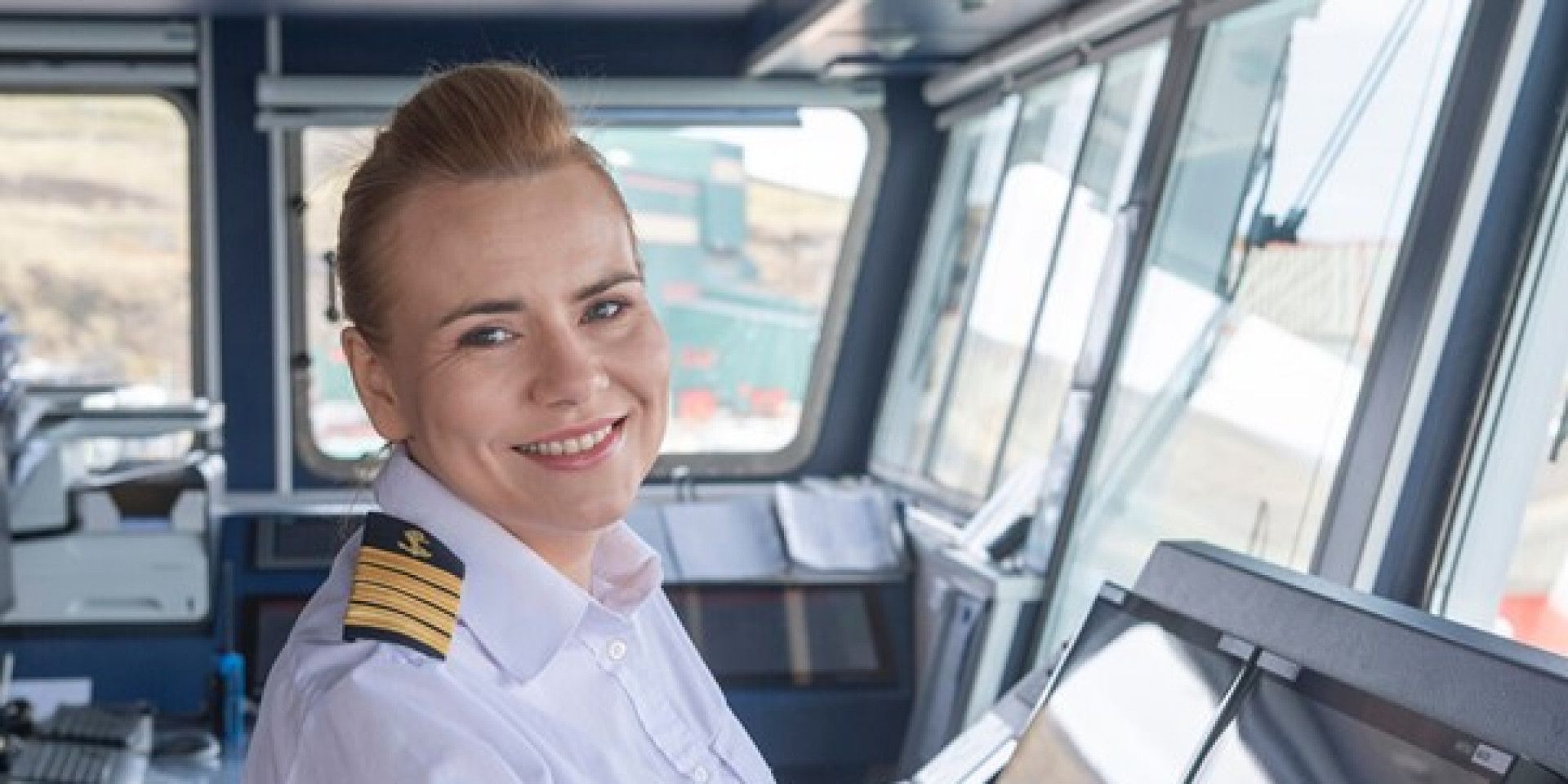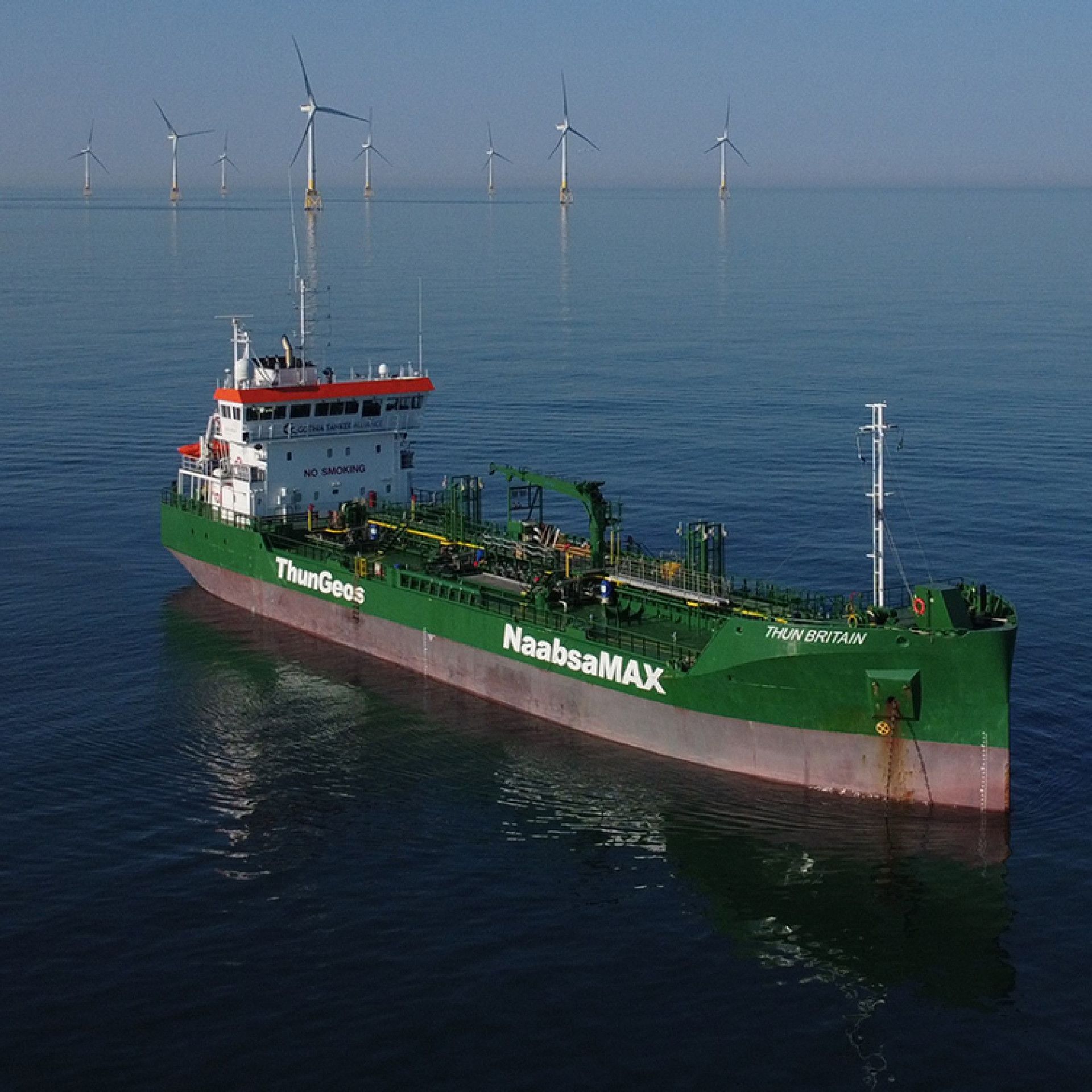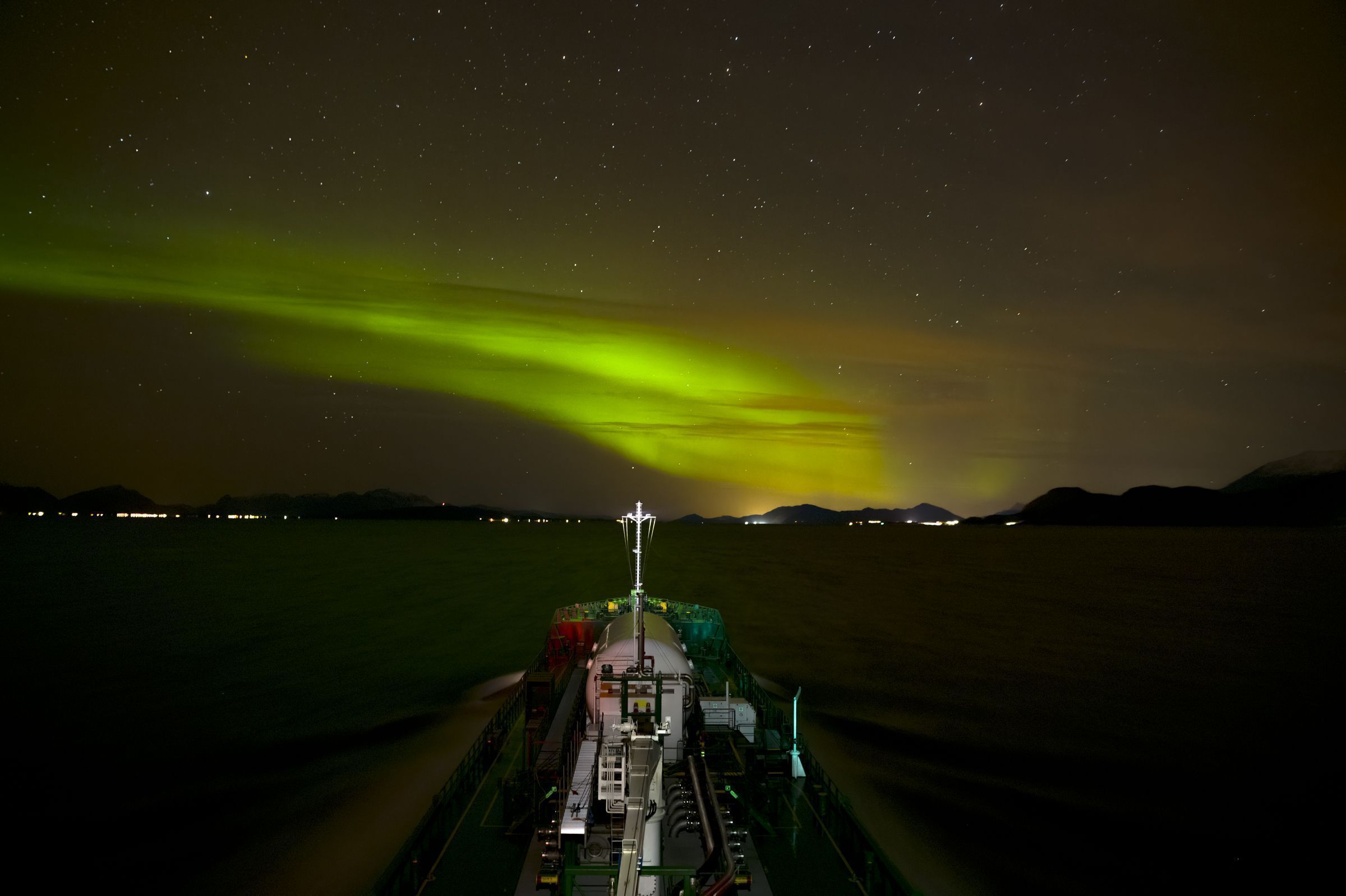
Woman at the Helm
Captain Joanna Makal (37) is the boss of a tanker. It’s the pinnacle of her profession, she says. But getting there wasn't easy. 'I had to prove myself again and again.'
Joanna, who’s Polish, is employed by Dutch ship management company MF Shipping Group. She's captain of a product tanker owned by Sweden's Thun Tankers, for which MF Shipping Group arranges the crew. 'As a kid, I wanted to do something different, not just a normal job. And I wanted to see the world. When I worked on bulk carriers, I visited a lot of countries. Nowadays I only work in European waters, but in my spare time I still travel a lot. Working in Europe is stable and I can work shorter terms: eight weeks on, eight weeks off, so I can be with my family more.'
Rolling and pitching
Joanna captains the Thun Britain, one of the company's newest vessels, which came into service in March 2022. She’s a special ship, designed according the ‘NAABSA’ principle: Not Always Afloat But Safely Aground. It has a strengthened bottom so that it can be moored in ports that are completely or partially dry, with little or no water. Joanna sails between the British port of Immingham, Aberdeen, the Orkney Islands, and the Shetlands. 'It’s really beautiful, but in winter it can be pretty rough. Especially on my ship, that means rolling and pitching because of the length of the vessels: she’s only eighty metres long, but about 15 metres wide. The dimensions were a requirement to be able to dock at certain ports within the sailing area for which the ship was designed.

My crew always say in winter that they can only sleep in port. So I constantly check the weather forecast and alter the route so our voyage is as safe, efficient, and comfortable as possible. Sometimes I even decide not to put out or to slow down, for safety reasons.'
At the top
What’s it like being a captain? 'To be honest, I love it,' she says, with a big smile. 'I’ve worked with a lot of different captains from different countries and I try to learn something from everyone in the way I do my work. The welfare of the crew is especially important to me. If I notice that someone wants to go home for personal reasons or has a problem on board, I do whatever I can to solve it.' She describes working aboard a gas tanker as working at the pinnacle of her profession. 'It feels like working at the very highest level. The cargo is hazardous, which adds to the sense of responsibility and challenge. I'm always looking for that adrenaline rush'. Joanna gets positive feedback about her work. 'Not just from the company during performance reviews but also from the crew. People ask to serve with me, which is nice.' But it wasn’t always like that. 'People didn’t have confidence in me, and I had to prove myself as captain again and again'. That was stressful, like when starting a new job. For me as a woman, that was even more true: I had to show over and over again that I’d deserved to get the job. But after a while, things began to change. I got to know more colleagues and more and more of them now know me. But that's only been in the past five or six years. I was really put to the test at first, with questions like: what’s the difference between diesel and petrol?'
Boundaries
She hears the same kind of stories from female colleagues. 'They also struggle and feel disadvantaged compared to male colleagues. Western society is open to women on board, but in Eastern Europe that's very different. There, women holding high positions are unusual. There have been times when I've phoned shipping companies about a job and was told that my husband should call himself if he wanted to work there! They didn't expect me to be calling for myself. But thankfully the world is changing. I increasingly get positive reactions from people who see me on the bridge, more and more women are going to sea, and more and more women are choosing maritime training. I hope it’ll become increasingly normal.' On board, her authority is in fact always accepted, especially since she works with people who know her. 'But when someone new comes on board, I always take them aside and explain my rules and practices. That we're a team and a family, that we support one another, and that they should report any mistakes to me. I don't accept any lying about that. I don't want to be distanced from my crew, but I always point out where the boundaries are.'
Godmother
Although she works for a Dutch shipping company, Joanna doesn't visit the Netherlands very often, at most for training, for example. She likes working for a Dutch employer: 'It’s stable. At first, I was a bit worried how things would work with taxation and health insurance, but that’s all been well taken care of.' Joanna accrues a pension just like Dutch people do. If she continues to work until her state pension age, she expects to have enough income. 'I live in Poland, where the cost of living is quite a bit lower than in the Netherlands. And in Poland, we don't pay tax on our savings, so that money doesn't lose its value as quickly as in the Netherlands. In that respect, I have an advantage over my Dutch colleagues. But inflation is also high in Poland, so saving extra can't hurt.' Joanna doesn’t know whether she’ll continue at sea until she retires. She isn’t planning that far ahead. 'For the time being, I don't have any other specific plans. My family are encouraging me to open a pastry shop because I really love baking. But leaving the sea? I just don't know, because I really enjoy my work. Even if it’s not exactly the way I dreamed it would be when I was a little girl.' She laughs, saying 'It's not a fairy-tale, it's just hard work.' She has one aim she'd like to achieve before she retires: to become godmother to a ship. 'That way my name would be immortalised in the shipping industry, which would be wonderful.'

